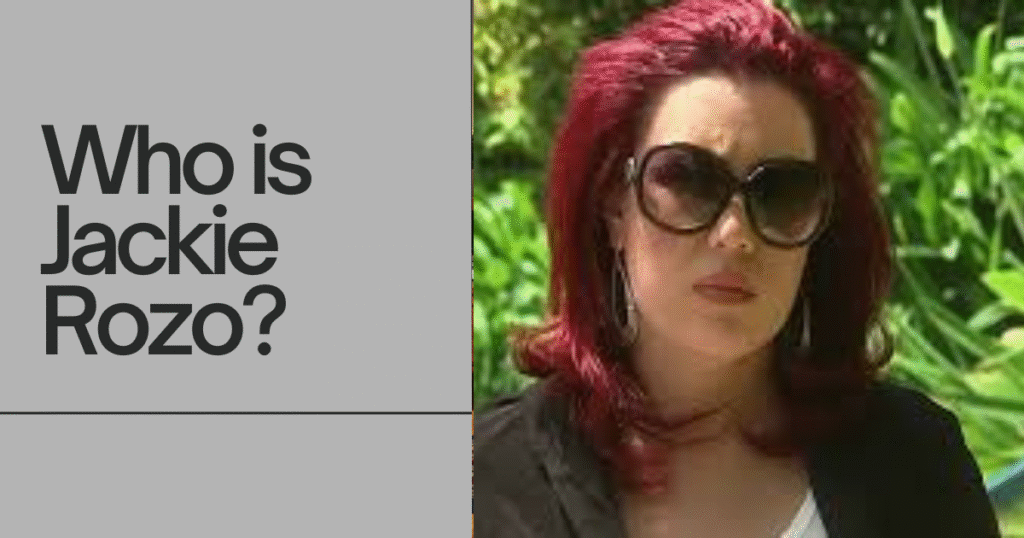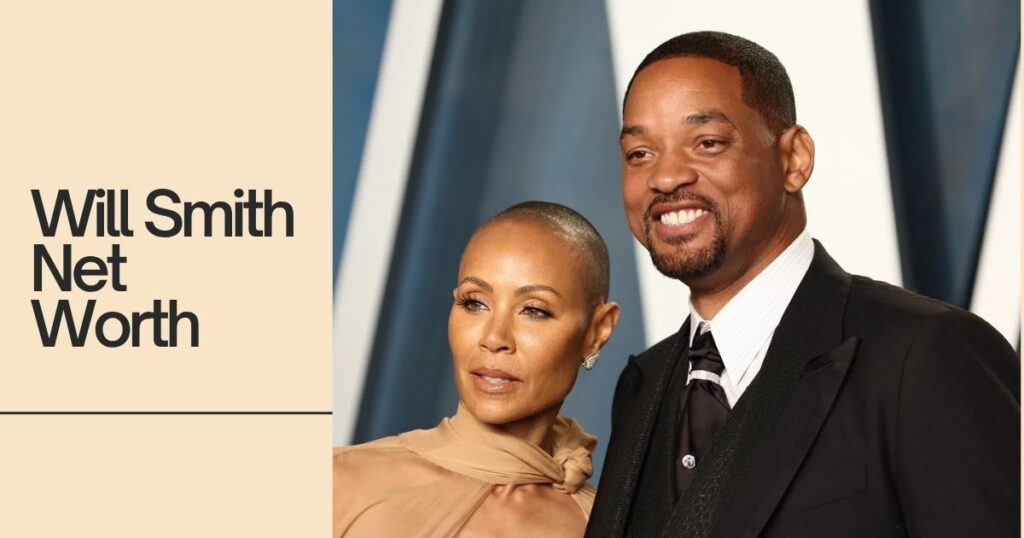Quick Facts About Paula Profit
| Category | Details |
| Full Name | Paula Profit (also known as Paula Speert) |
| Birth Date | March 27, 1965 (age 60 in 2025) |
| Birthplace | California, United States |
| Famous For | Charlie Sheen’s high school girlfriend, entrepreneur |
| Children | Cassandra Jade Estevez (b. December 12, 1984) |
| Grandchildren | Luna Huffman (b. July 2013) |
| Companies Founded | Jackson Mud, Inc. (2002) – Children’s toys<br>J-Play Around the World, Inc. – Card games |
| Marriage Status | Remarried (spouse name private) |
| Net Worth | Estimated $1-3 million (unconfirmed) |
| Current Residence | California (specific location undisclosed) |
| Social Media | No public presence (intentional) |
What does it take to become a mother at 19, watch your child’s father become one of Hollywood’s most controversial stars, and still build a multi-million dollar business empire while keeping your family completely out of the tabloid circus? Paula Profit knows the answer—and her story challenges everything you think you know about celebrity baby mamas, teen mothers, and women connected to famous men.
While Charlie Sheen’s other relationships played out in headlines, court battles, and reality TV drama, Paula Profit quietly built two successful companies in the competitive children’s entertainment industry. She raised a daughter who chose stability over spotlight, became a devoted grandmother, and proved that your life’s trajectory isn’t determined by who you dated in high school—even if that person becomes one of the most talked-about actors in Hollywood history.
This is the complete story of Paula Profit: the business strategies that made her financially independent, the parenting choices that gave Cassandra a normal childhood despite her famous father, and the lessons every young mother can learn from a woman who turned teenage pregnancy into entrepreneurial success.
Paula Profit is an American entrepreneur and the mother of Cassandra Jade Estevez, Charlie Sheen’s oldest daughter. Born March 27, 1965, Paula dated Sheen during high school and became a mother at age 19 in 1984. She founded Jackson Mud, Inc., a children’s toy company, in 2002, followed by J-Play Around the World, Inc., which specializes in card games. Despite her connection to one of Hollywood’s most controversial actors, Paula maintains complete privacy, has no social media presence, and built financial independence through her business ventures while successfully co-parenting her daughter.
Who Is Paula Profit? The Woman Behind the Business Empire
Paula Profit is a California-born entrepreneur who transformed the challenge of teen motherhood into a launching pad for business success. Born on March 27, 1965, she grew up in Southern California during an era when the region was becoming the epicenter of American entertainment. Her life took an unexpected turn during her teenage years at Santa Monica High School, where she met and fell in love with Carlos Irwin Estévez—better known today as Charlie Sheen.
What makes Paula’s story compelling isn’t just her connection to a Hollywood star. It’s what she chose to do with that connection—or more accurately, what she chose not to do. While many former partners of celebrities monetize their relationships through tell-all books, reality TV appearances, or social media influencer careers, Paula took a different path entirely. She built legitimate businesses, raised her daughter with remarkable stability, and maintained privacy boundaries that seem almost impossible in today’s digital age.
Her companies, Jackson Mud, Inc. and J-Play Around the World, Inc., represent more than just business ventures. They demonstrate strategic thinking about building generational wealth independent of child support or celebrity connections. By focusing on the children’s entertainment market—toys and card games—Paula entered industries with consistent demand, low celebrity association, and strong profit potential.
Today, at 60 years old, Paula Profit is a grandmother who watches her daughter Cassandra raise Luna with the same grounded approach Paula modeled decades earlier. She lives in California (exact location intentionally undisclosed), maintains zero public social media presence, and continues to run her businesses while Charlie Sheen’s turbulent personal life continues making headlines. The contrast between their paths reveals an important truth: sometimes the smartest response to fame is refusing to chase it.
The High School Romance That Changed Everything
Paula Profit and Charlie Sheen’s relationship began in the early 1980s at Santa Monica High School, a place where the children of entertainment industry professionals mixed with regular California teenagers. Charlie, whose father Martin Sheen was already an established actor, wasn’t yet the household name he would become. Paula was a typical teenage girl navigating high school while surrounded by Hollywood’s orbit.
Their relationship quickly became serious—serious enough that when Paula discovered she was pregnant during their senior year, both teenagers faced a life-altering decision. In 1984, when contraception and sex education were far less comprehensive than today, teenage pregnancy carried significant social stigma. For a young woman connected to an aspiring actor from a famous family, the pressure must have been immense.
Paula chose to have the baby. On December 12, 1984, Cassandra Jade Estevez entered the world, making Paula a 19-year-old mother and Charlie a teenage father on the verge of Hollywood stardom. The timing couldn’t have been more complicated. Charlie had just appeared in “Red Dawn” (1984) alongside Patrick Swayze and was about to land the role in “Platoon” (1986) that would launch him into the A-list.
The relationship between Paula and Charlie didn’t survive the pressures of new parenthood and rapidly escalating fame. By the time Cassandra was a toddler, they had separated, setting the stage for two very different life trajectories. Charlie would go on to marry and divorce three times (Donna Peele, Denise Richards, and Brooke Mueller), father four more children, and become one of television’s highest-paid actors before public meltdowns and controversies derailed his career.
Paula, meanwhile, focused on the immediate challenges: raising a baby, completing her education, and figuring out how to build financial stability as a single mother connected to increasingly famous ex-boyfriend. Her response to these challenges would define not just her life, but her daughter’s as well.
Teen Motherhood Reality: The Challenges Paula Faced
Becoming a mother at 19 in 1984 presented challenges modern young mothers might not fully appreciate. This was pre-internet, pre-social media, pre-online support groups. Single teenage mothers faced significant social stigma, limited childcare resources, and reduced career opportunities compared to their childless peers.
Paula’s specific situation added unique complications. Her baby’s father was becoming increasingly famous, which meant public interest in Cassandra’s existence. In the 1980s and 1990s, tabloid culture exploded with publications like The National Enquirer, Star Magazine, and later TMZ building entire business models around celebrity gossip. A child from Charlie Sheen’s pre-fame relationship represented exactly the kind of “secret baby” story tabloids craved.
She also faced the financial reality of single motherhood. While Charlie presumably provided child support as his income grew, Paula needed to build her own financial independence. Relying solely on someone else’s income—even legally mandated child support—creates vulnerability. What if payments stop? What if the father’s career falters? What if you want to make decisions without financial constraints?
These pressures could have pushed Paula toward decisions that many in her position made: leveraging the celebrity connection for personal gain. By the 1990s, being a celebrity’s baby mama could itself become a career. But Paula saw these short-term opportunities as long-term traps. Trading on your ex-boyfriend’s fame might generate quick cash or temporary attention, but it doesn’t build sustainable wealth or give your child a normal childhood.
Instead, Paula made harder choices that wouldn’t pay off immediately but would create lasting stability. She kept Cassandra away from media attention, avoided interviews about Charlie, worked on building real skills and business experience, and focused on being a present, protective mother rather than a fame-adjacent personality. These decisions required discipline, patience, and confidence that the long-term payoff would justify short-term sacrifices.
The result? Cassandra grew up without being defined by “Charlie Sheen’s daughter” labels. She wasn’t photographed constantly, didn’t have her childhood commodified, and developed her own identity separate from her father’s increasingly chaotic public image. That foundation would serve her well as an adult trying to build her own family away from Hollywood’s dysfunction.
Building Jackson Mud, Inc.: From Concept to Children’s Toy Company
In 2002, nearly two decades after becoming a mother, Paula Profit founded Jackson Mud, Inc., a company specializing in children’s toys. This move represented significant strategic thinking about how to build generational wealth in an industry with strong fundamentals and relatively low barriers to celebrity association.
The children’s toy industry in the early 2000s was undergoing significant transformation. Traditional toy giants like Mattel and Hasbro dominated mass-market distribution, but boutique toy companies were finding success by focusing on educational toys, creative play, and alternative retail channels. Parents—particularly affluent, educated parents in markets like California—were increasingly willing to pay premium prices for toys that weren’t mass-produced plastic licensed from Hollywood movies.
Paula’s company name, “Jackson Mud,” offers interesting insight into her branding strategy. The name evokes playfulness and childhood without any connection to her personal history or celebrity associations. Parents buying Jackson Mud products wouldn’t have any idea they were purchasing from Charlie Sheen’s ex-girlfriend. This separation was intentional—Paula wanted her business judged on product quality and innovation, not celebrity gossip.
Starting a toy company requires several key capabilities:
Product Development: You need to either design toys yourself or work with designers who understand child development, safety regulations, and market trends. Successful toys balance educational value, play appeal, and parent approval. They must meet rigorous safety standards (ASTM F963 in the United States) covering choking hazards, toxic materials, and mechanical hazards.
Manufacturing Relationships: Most small toy companies don’t manufacture their own products. Instead, they design toys and contract with manufacturers, often overseas, to produce them at scale. Managing these relationships requires understanding quality control, production timelines, and supply chain logistics.
Distribution Channels: Getting toys into stores or online platforms requires relationships with retailers, understanding of retail economics, and often significant upfront capital. Boutique toy stores, specialty retailers, and later online marketplaces offer alternatives to competing directly with mass-market giants.
Marketing to Multiple Audiences: Toy companies must appeal to both children (who want the toys) and parents (who buy them). This requires sophisticated marketing that addresses play value, educational benefits, safety, and value simultaneously.
Paula’s ability to launch and apparently sustain Jackson Mud, Inc. for over two decades suggests she either developed these capabilities herself or built a team with the necessary expertise. Either way, it demonstrates business acumen that goes far beyond simply having access to capital from child support.
The financial potential in boutique toys is significant. While mass-market toys compete on price and volume, boutique companies can charge premium prices for perceived quality and uniqueness. Gross margins of 50-70% aren’t unusual when you’re manufacturing overseas and selling at boutique prices. Even a relatively small company generating $500,000-$2 million in annual revenue can produce substantial profit for an owner-operator.
Expanding the Empire: J-Play Around the World, Inc.
Following her success with Jackson Mud, Inc., Paula Profit founded a second company: J-Play Around the World, Inc., focusing on card games and their global distribution. This expansion reveals strategic thinking about business growth and market diversification.
Card games represent a different segment of the children’s entertainment market than physical toys. They typically have:
Lower Production Costs: Manufacturing playing cards costs significantly less than producing three-dimensional toys. This allows for higher profit margins or more aggressive pricing to gain market share.
Educational Angles: Many children’s card games incorporate learning elements—matching, memory, numbers, letters, strategy. This appeals to parents seeking “productive” entertainment that develops cognitive skills while kids think they’re just playing.
Portability: Card games travel easily, making them popular for restaurants, road trips, and situations where bulky toys aren’t practical. This creates use cases that physical toys can’t satisfy.
International Appeal: Unlike toys that might need significant adaptation for different markets, card games often translate more easily across cultures. Simple visual games or those with language cards can be adapted for multiple markets without complete redesign.
The name “J-Play Around the World” suggests Paula intended global distribution from the start. International expansion in the toy and game industry opens significant revenue potential but requires understanding of:
- Different safety and regulatory requirements by country
- International shipping and customs processes
- Multiple currency transactions and exchange rate risk
- Cultural differences in play patterns and parent preferences
- Intellectual property protection in multiple jurisdictions
Managing a second company while running Jackson Mud requires either exceptional personal capacity or building capable teams. Most successful entrepreneurs eventually transition from doing everything themselves to hiring people who can manage operational details while the founder focuses on strategy and growth.
Paula’s ability to launch and sustain two companies in related but distinct segments shows sophisticated business thinking. Rather than putting all resources into one venture, she diversified across related markets. If toy trends shift or one product category faces challenges, the other company provides stability. This risk management approach suggests Paula thinks like a serious entrepreneur, not someone playing at business while living off child support.
The combined value of two profitable companies in related markets could easily explain Paula’s estimated net worth of $1-3 million. When you own 100% of two companies with no investors or partners to split profits with, and you’ve been building these businesses for over two decades, substantial wealth accumulation is not just possible but likely.
Co-Parenting with Charlie Sheen: Strategies That Actually Worked
One of the most remarkable aspects of Paula Profit’s story is what didn’t happen: despite Charlie Sheen’s very public struggles with substance abuse, erratic behavior, domestic violence allegations, and multiple contentious divorces, there’s no evidence of similar drama with Paula or their daughter Cassandra. This absence of conflict is itself a significant achievement that offers lessons about effective co-parenting.
Consider the contrast with Charlie’s later relationships. His marriage to Denise Richards ended in divorce filled with allegations about his drug use and behavior, playing out in tabloids and eventually reality TV. His marriage to Brooke Mueller involved restraining orders, custody battles, and ongoing public conflicts. Yet Cassandra, his oldest child with Paula, appears to have maintained a stable relationship with both parents throughout her life.
Charlie walked Cassandra down the aisle when she married Casey Huffman in 2010. He’s spoken positively about her in interviews, describing her as “tough like her dad” and expressing pride in her life choices. Photos from family events show him interacting with his granddaughter Luna, suggesting ongoing family connections. This stability stands in stark contrast to his relationships with his other children and their mothers.
What explains this difference? Several factors likely contributed:
Early Separation: Paula and Charlie separated before his fame reached its peak and before the behavioral patterns that would later cause so many problems fully developed. By establishing independent lives early, they avoided the enmeshment that comes from shared finances, homes, and public identities.
Paula’s Boundaries: By refusing to engage publicly with Charlie’s life and maintaining privacy, Paula created a buffer. She wasn’t commenting on his marriages, his scandals, or his behavior. This non-engagement removed a source of conflict and kept their co-parenting relationship separate from his public drama.
Financial Independence: Because Paula built her own wealth through business, she wasn’t dependent on child support or trying to extract more money through courts or media pressure. Financial independence reduces one of the most common sources of co-parenting conflict.
Cassandra’s Protection: Both parents apparently agreed that protecting Cassandra from media attention mattered more than any conflicts they might have. This shared value created common ground even when other aspects of their lives diverged dramatically.
No Competing for Public Sympathy: Unlike Denise Richards or Brooke Mueller, who ended up in public battles with Charlie where each side tried to control the narrative, Paula never competed in that arena. She let Charlie be as public as he wanted while she remained private, removing the competitive dynamic that often escalates conflict.
These strategies offer practical lessons for anyone co-parenting with someone very different from themselves. You don’t have to like your co-parent or approve of their choices to successfully raise children together. You need boundaries, financial independence, shared commitment to protecting the children, and willingness to let the other parent’s life be separate from yours.
Paula’s success in this arena might be her most significant achievement, even more than her business success. She gave Cassandra a stable childhood and maintained a functional co-parenting relationship with someone whose other relationships consistently descended into public chaos. That takes remarkable emotional intelligence, discipline, and maturity.
Raising Cassandra: The Parenting Choices That Made the Difference
Cassandra Jade Estevez’s life trajectory—stable marriage, seemingly grounded personality, private life despite famous father—didn’t happen by accident. It resulted from specific parenting choices Paula Profit made, often in direct opposition to what might have been easier or more lucrative options.
Key Parenting Decisions:
1. Privacy Over Profit Paula could have monetized Cassandra’s connection to Charlie Sheen countless times. Reality TV shows about celebrity kids, magazine interviews, social media influencer opportunities—all would have generated income. Instead, Paula kept Cassandra almost completely out of public view. This decision preserved Cassandra’s ability to develop her own identity separate from her father’s fame and dysfunction.
2. Normal Life Over Hollywood Despite living in California with direct connections to the entertainment industry, Paula apparently didn’t push Cassandra toward acting or entertainment careers. She wasn’t a child actor, didn’t attend industry events, and wasn’t groomed for Hollywood. This allowed Cassandra to choose her own path without the pressure or dysfunction that often comes with child stardom.
3. Financial Independence By building businesses and creating her own wealth, Paula modeled financial independence for Cassandra. She showed her daughter that women don’t need to depend on men—even famous, wealthy men—for financial security. This lesson likely influenced Cassandra’s approach to her own adult life.
4. Boundaries with Charlie While maintaining Cassandra’s relationship with her father, Paula apparently established clear boundaries about when Charlie’s chaos would and wouldn’t affect their household. This protected Cassandra from being dragged into her father’s problems while still allowing them to have a relationship.
5. Stable Home Environment Paula remarried (her current spouse’s identity remains private) and apparently created a stable second family environment. This gave Cassandra an example of what healthy adult relationships look like, countering what she might have seen in her father’s turbulent romantic life.
The results speak for themselves. Cassandra married Casey Huffman in 2010, and by all public accounts, they’ve maintained a stable marriage for over a decade—a rarity in Hollywood families. She became a mother to Luna in 2013 and appears to be raising her daughter with the same privacy-focused approach Paula modeled. Cassandra hasn’t sought fame, hasn’t monetized her famous family connections, and has built a life centered on family rather than celebrity.
This generational impact—Paula’s parenting creating stability that Cassandra now replicates with Luna—represents Paula’s most lasting legacy. She broke a potential cycle where Charlie’s dysfunction could have affected multiple generations and instead created a new pattern of stability and healthy choices.
Paula Profit vs. Charlie’s Other Partners: A Revealing Comparison
Understanding who Paula Profit is requires comparing her approach to Charlie Sheen’s other significant relationships. The differences reveal what made Paula’s strategy so effective and why her daughter’s life turned out so differently from Charlie’s other children.
| Aspect | Paula Profit | Denise Richards | Brooke Mueller |
| Relationship Period | Early 1980s (pre-fame) | 2002-2006 | 2008-2011 |
| Children | Cassandra (1984) | Sami (2004), Lola (2005) | Bob and Max (2009) |
| Public Profile | Completely private | Actress, reality TV | Public struggles |
| Co-Parenting | Stable, quiet | Public battles, court | Custody disputes |
| Media Strategy | Total avoidance | Reality TV, interviews | Inconsistent |
| Children’s Privacy | Fully protected | Limited, on social media | Limited |
| Financial Approach | Independent businesses | Acting, divorce settlement | Legal disputes |
| Current Relationship | Cordial, private | Complicated, improved | Reportedly strained |
This comparison reveals several key differences:
Timing Matters: Paula’s relationship with Charlie occurred before his fame peaked and before his behavioral problems fully manifested. This allowed her to establish independence before getting entangled in his chaos.
Privacy as Strategy: While Denise Richards initially tried to keep her split with Charlie private, she eventually appeared on reality TV and gave interviews. Brooke Mueller’s struggles played out publicly. Paula never deviated from complete privacy, which eliminated the public relations battles that escalated the other relationships.
Financial Independence: Paula built businesses instead of relying primarily on divorce settlements or child support. This gave her leverage to make choices based on what was best for Cassandra rather than financial necessity.
No Competition: Paula never competed with Charlie for public sympathy or tried to control the narrative about their relationship. This removed a major source of conflict that plagued his marriages.
The outcomes for the children reflect these different approaches. Cassandra has lived a stable, private life. Charlie’s daughters with Denise Richards have struggled more publicly, with Sami launching an OnlyFans account at 18 and both daughters appearing on social media regularly. His sons with Brooke Mueller have faced challenges related to their mother’s struggles with substance abuse and ongoing custody complexities.
None of this is to criticize Denise Richards or Brooke Mueller, who faced very different circumstances than Paula. But the comparison shows how Paula’s specific strategies—early separation, complete privacy, financial independence, and boundary maintenance—created different outcomes.
The Grandmother Years: Paula’s Continuing Influence
Paula Profit became a grandmother when Cassandra and Casey Huffman welcomed daughter Luna in July 2013. This new role offers insight into how Paula’s influence continues shaping the next generation.
Photos that occasionally surface from family events show Paula in grandmotherly roles—holding Luna, attending family gatherings, being present for important moments. But true to form, these images remain limited and carefully controlled. Luna isn’t growing up on Instagram with her grandmother’s commentary. She’s not being branded as “Charlie Sheen’s granddaughter” for social media followers.
This approach mirrors exactly how Paula raised Cassandra: present, engaged, and protective of childhood privacy. The consistency suggests these aren’t just isolated choices but deeply held values about how children should grow up. Paula apparently believes—and demonstrated through both her daughter and granddaughter—that children benefit from privacy, normal experiences, and freedom from being commodified for public consumption.
Luna is now approximately 11-12 years old (as of 2025), approaching the age where social media and public attention become more challenging to manage. The fact that she’s remained largely out of public view through childhood suggests the family’s privacy strategy continues working. This stands in stark contrast to many celebrity grandchildren who are effectively influencers before they start middle school.
Paula’s role as grandmother also likely includes passing on the entrepreneurial knowledge she gained building Jackson Mud and J-Play. Skills like financial management, business thinking, and economic independence are perhaps the most valuable inheritance Paula can provide—worth far more than any trust fund.
Why Paula Profit’s Privacy Strategy Still Works in 2025
In an era where privacy seems increasingly impossible, Paula Profit’s ability to maintain near-total anonymity for over four decades is remarkable. Her strategy offers lessons for anyone seeking to protect their privacy while connected to public figures.
Essential Elements of Paula’s Privacy Approach:
Complete Social Media Absence Paula maintains no public Facebook, Instagram, Twitter, or other social media accounts. This isn’t just about not posting—it’s about not creating platforms where others can tag you, comment on your life, or build narratives about you.
No Media Engagement For over 40 years, Paula has given no interviews about her relationship with Charlie Sheen, her daughter, or her life. She doesn’t comment when contacted by media, doesn’t issue statements, and doesn’t try to “set the record straight” when speculation emerges.
Business Separation Her companies operate under names with no connection to her personal history. Someone buying Jackson Mud toys or J-Play card games has no reason to connect them with Charlie Sheen’s ex-girlfriend.
Name Variations Paula appears in different records as Paula Profit, Paula Speert, and other variations. This makes comprehensive database searches more difficult and creates uncertainty about which profiles actually belong to her.
Strategic Family Boundaries While maintaining relationships with Cassandra and presumably attending private family events, Paula avoids situations where she might be photographed or publicly documented. She’s not attending Charlie’s premieres, not appearing in family reality TV, not giving interviews about being a grandmother.
Legal Privacy Protections Though specific details aren’t public, Paula likely uses whatever legal tools are available to protect her privacy—from opting out of data broker databases to potentially using trusts or business structures that separate her personal identity from public records.
This comprehensive approach requires discipline and consistency. One interview, one social media account, one reality TV appearance could undermine decades of privacy maintenance. That Paula has never deviated suggests extraordinary commitment to her values.
The effectiveness of her strategy proves privacy is still achievable even for people connected to very public figures. It requires saying “no” to money and attention repeatedly, but Paula’s example shows the long-term benefits justify short-term sacrifices.
Financial Independence: How Paula Built Wealth Beyond Child Support
While child support from Charlie Sheen presumably contributed to Cassandra’s upbringing expenses, Paula Profit’s business ventures represent something far more important: generational wealth and economic independence that doesn’t depend on anyone else.
Child support, even from a wealthy celebrity, comes with limitations and vulnerabilities. It ends when children reach adulthood. It can be reduced if the payer’s income drops. It creates ongoing legal ties to someone you may prefer to have minimal contact with. Most importantly, it doesn’t build assets you control and can pass to future generations.
Paula’s business approach created different outcomes. When you own companies that generate revenue, you build equity that compounds over time. A toy company or game company launched in 2002 has had over twenty years to develop intellectual property, build customer relationships, establish distribution channels, and create brand value. Even relatively small companies can be worth substantial amounts when you consider accumulated profit over two decades plus the business assets themselves.
Conservative estimates suggest Paula’s net worth falls somewhere between $1-3 million, though exact figures remain unverified. This wealth likely comes from:
Business Equity: The combined value of Jackson Mud, Inc. and J-Play Around the World, Inc., including inventory, intellectual property, customer relationships, and brand value.
Accumulated Profit: Two decades of business operations generating profit that could be invested in real estate, stocks, or other assets.
Real Estate: Property ownership in California, where real estate values have increased dramatically over the past four decades.
Investments: Prudent investment of business profits into diversified portfolios that grow over time.
This wealth fundamentally differs from money received as child support or divorce settlements. Paula built assets through her own effort and business acumen. She can pass these assets to Cassandra and Luna. They generate ongoing income even if she stops actively working. And they give her economic leverage to make life choices based on what she values rather than financial necessity.
For young mothers, particularly those connected to wealthy partners, Paula’s example offers an important lesson: child support and divorce settlements provide short-term security, but building your own wealth through business or career creates long-term independence and generational impact.
Lessons from Paula Profit: What Every Young Mother Can Learn
Paula Profit’s journey from teenage mother to successful entrepreneur offers actionable lessons for anyone facing similar challenges, regardless of celebrity connections.
Step-by-Step Strategy for Building Independence:
Step 1: Protect Your Children’s Privacy First Before monetizing your situation or seeking attention, consider how public exposure affects your children long-term. Paula’s commitment to Cassandra’s privacy gave her daughter freedom to develop her own identity.
Step 2: Build Skills and Experience Before Launching Businesses Paula waited nearly two decades after Cassandra’s birth before founding Jackson Mud. She presumably spent those years gaining business knowledge, building capital, and developing expertise. Patience matters more than speed.
Step 3: Choose Industries Based on Fundamentals, Not Connections Paula entered the children’s toy and game markets because they offered good business fundamentals—consistent demand, reasonable margins, multiple distribution channels. She didn’t try to leverage entertainment industry connections or trade on celebrity association.
Step 4: Maintain Boundaries with Ex-Partners Effective co-parenting doesn’t require being friends or agreeing about everything. It requires clear boundaries about what you will and won’t engage with. Paula’s refusal to publicly comment on Charlie’s life removed a major source of potential conflict.
Step 5: Think Generationally Every decision Paula made seemed to consider not just immediate outcomes but how choices would affect Cassandra and future generations. This long-term thinking created stability that continues benefiting her family today.
Step 6: Financial Independence Trumps Short-Term Gains Paula could have made significant money through interviews, books, or reality TV. She chose business building instead because it created lasting wealth rather than temporary income.
Step 7: Let Your Work Speak for Itself Paula never needed to explain her choices or defend her strategy publicly. The results—a successful daughter, profitable businesses, maintained privacy—validated her approach without requiring public relations campaigns.
These principles work regardless of whether you’re connected to a celebrity. They represent sound strategy for anyone building a life after unexpected teen motherhood, navigating co-parenting challenges, or trying to create financial stability while protecting family privacy.
Where Is Paula Profit Now? Current Life and Future Legacy
As of 2025, Paula Profit continues living in California, maintaining the same privacy-focused life she’s built over four decades. At 60 years old, she presumably remains involved with her businesses, though their current operational status isn’t publicly documented. She serves as grandmother to Luna, now approximately 11-12 years old, and maintains whatever relationship she chooses with Charlie Sheen’s extended family.
The lack of current information isn’t a failure of research—it’s evidence her privacy strategy continues working. In a digital age where most people leave extensive data trails, Paula has maintained boundaries that protect her current life from public scrutiny.
Her legacy, however, is clearly visible in outcomes rather than headlines:
Cassandra’s Success: A daughter who built a stable marriage, became a devoted mother, and chose privacy over celebrity despite easy access to fame.
Generational Impact: Luna growing up with the same privacy protections that served Cassandra well, breaking cycles of dysfunction common in celebrity families.
Business Achievement: Two companies operating for over two decades in competitive markets, creating wealth independent of celebrity connections.
Co-Parenting Model: Demonstrated that functional co-parenting is possible even with difficult partners, offering a template others can follow.
Privacy Proof: Showed that privacy remains achievable even for people connected to very public figures, contradicting assumptions that modern life requires constant visibility.
Perhaps most importantly, Paula Profit proved that your life story doesn’t have to be defined by who you dated in high school—even if that person became one of the most famous and controversial actors in Hollywood. She showed that becoming a mother at 19 doesn’t limit your potential. She demonstrated that effective parenting matters more than perfect circumstances. And she built wealth and stability through business acumen rather than leveraging celebrity connections.
Conclusion
Paula Profit’s story challenges conventional narratives about teen mothers, celebrity baby mamas, and women connected to famous men. Instead of becoming a footnote in Charlie Sheen’s tumultuous life story, she built a parallel narrative defined by business success, effective parenting, and maintained privacy.
Her journey from 19-year-old mother to successful toy company founder demonstrates that entrepreneurship offers young mothers a path to financial independence that child support alone can never provide. Her ability to co-parent effectively with Charlie Sheen while his other relationships descended into public chaos shows that boundaries and financial independence make functional co-parenting possible even in difficult circumstances. And her success in raising Cassandra to choose stability over celebrity proves that parenting choices have generational impact that extends far beyond childhood.









